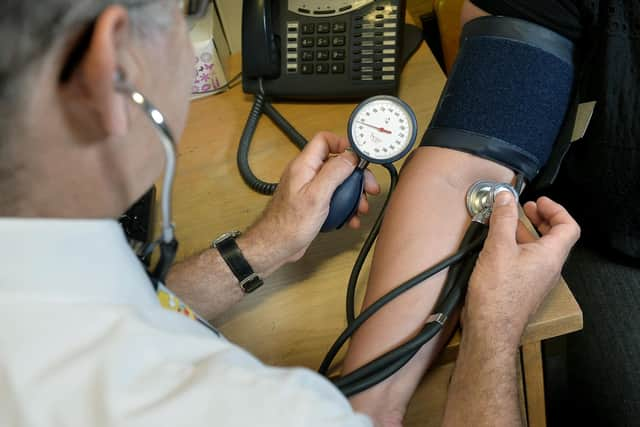Issues faced by GP practices need addressing to alleviate frustrations - Daxa Patel
I know in my previous work as a Clinical negligence solicitor often victims faced long drawn-out legal cases sometimes lasting years just to get an apology. The defensive position used by the offending party is often aimed to wear the victim down hoping that they will give up and not seek redress. Hats off to Mr Bates and all those who kept fighting and are still fighting to clear their names.
It is a travesty if an injustice of this magnitude only attracts the attention of those in power after a national outrage.
Advertisement
Hide AdAdvertisement
Hide AdA different scandal is unfolding and has been unfolding for some time in our midst but currently those in power are seemingly oblivious to.


I am of course referring to the daily challenges faced by patients when they need care and do not get it. We have a national health system that is not always accessible to its patients. No, it is not always the fault of the clinicians or those working on the frontline. And neither are the patients to be blamed.
In my last column I mentioned the challenges faced by patients with regards to GP services. This week I want to put the other side of the argument for a balanced view. According to the BMA (British Medical Association) doctors, and GP practices face challenges with rising demands, recruitment, and retention issues. There is a higher rate of burn out amongst GPs as they are working under immense pressure. There are fewer doctors looking after more patients than ever before with an 18 per cent increase of patients per GP in November 2023 as compared to in September 2015.
There is a decline in the number of GPs with many preferring to work part time or as locums for better work life balance, and who can blame them. However, often part time working GPs like so many other professionals, are in fact working longer and unpaid hours to meet the demands of their job.
Advertisement
Hide AdAdvertisement
Hide AdAccording to the Office of National Statistics, there are more junior doctors now and fewer fully qualified GPs. However, fewer patients per doctor but with a greater proportion of patients over the age of 65.
The pandemic increased the workload with vaccination and booster appointments. Added to all this is the rise in the number of patients and the frustration patients experience in accessing GP care.
My last column caused some to contact me directly to share their frustrations, amongst them was a GP who said they are not able to serve their patients as they were able to do so say ten years ago, and they are glad to be out of it.
A lovely couple contacted me to share their frustration of being passed from pillar to post between the GP receptionist, and the chemist for their regular medication. Their regular GP also works privately and has little time for their NHS patients. Between all this there must be a grain of truth, and if people feel like medical care is at the mercy of a postcode lottery than there is only one way, we go further down or we rise to improve our health and the system.
Advertisement
Hide AdAdvertisement
Hide AdWe cannot lay the blame entirely with the patients or the GP practice but given the growing demands and the rise in the ‘older’ population, a review is needed so that the service on offer is fit for purpose.
Furthermore, and where neither the service, nor the people involved are abused, or made to feel inconsequential. Everyone deserves to be treated with respect and dignity. We cannot have a system where GPs feel they are working with their hands tied behind their back nor can we tolerate the challenges older people face trying to get an in-person GP appointment. Technology has advanced so the option of helping patients virtually should not be dismissed but how does one pick up on the silent body language in a Zoom call? These tools have limitations too.
So, what is the answer? In my opinion, we could introduce a charge to eliminate wasted appointments. We could invest more and offer training to ensure patients take responsibility for their health and fitness.
Supermarkets and fast-food providers need to be better regulated; we know sugar causes harm so why are we not advocating healthier options? There could be a role for complimentary treatments and practitioners as well as better use, and coordination of other health service professional providers, such as pharmacies, health care assistants, dieticians, specialist nurses, counsellors, and the community. We could also invest more in training those working within GP as better bedside manners could also make a difference.
One of the greatest challenges our society faces, and this became more profound during the pandemic is the issue of loneliness.
Daxa Manhar Patel is a leadership coach, author and solicitor.
Comment Guidelines
National World encourages reader discussion on our stories. User feedback, insights and back-and-forth exchanges add a rich layer of context to reporting. Please review our Community Guidelines before commenting.